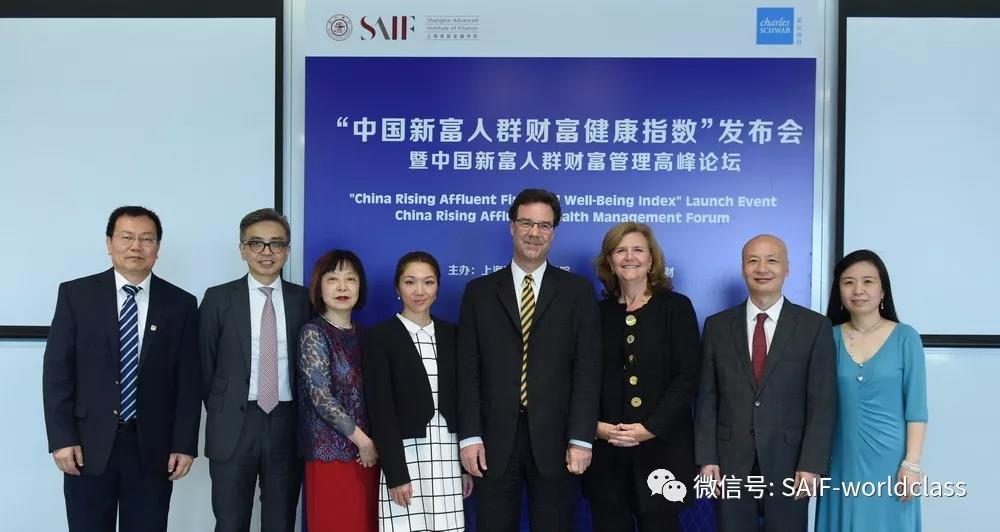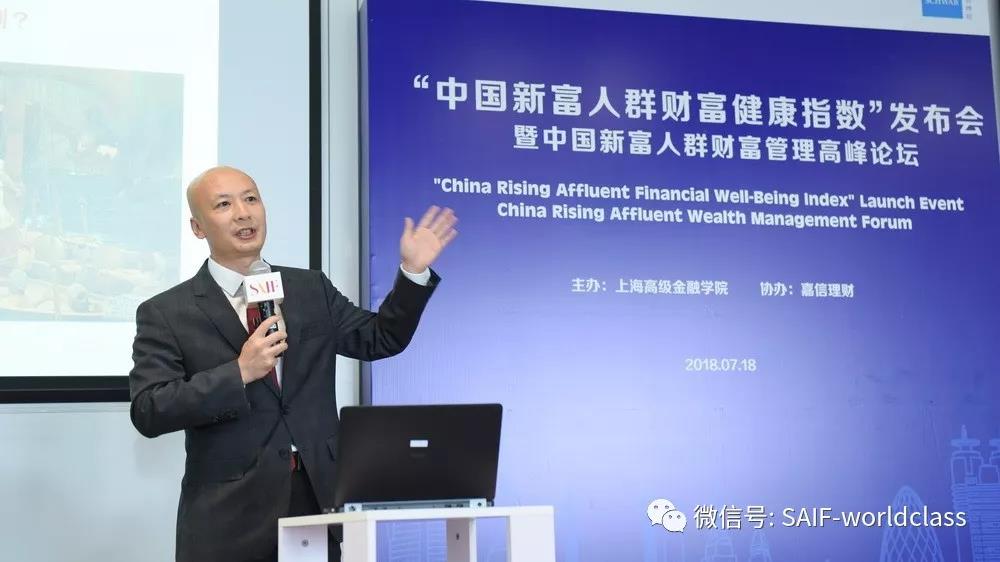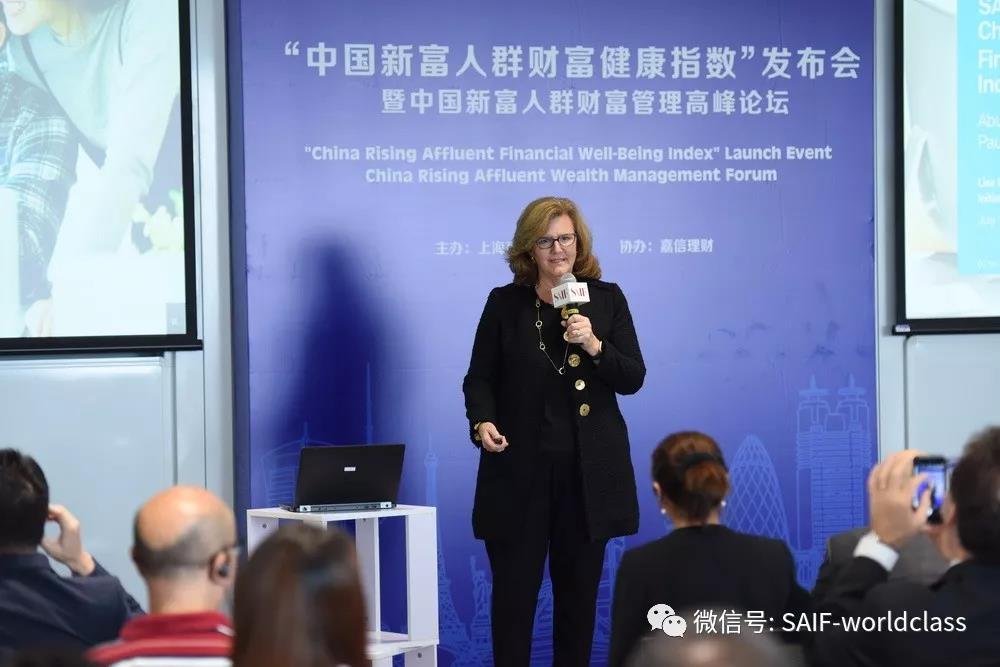China’s “Rising Affluent” show increased financial confidence despite economic headwinds
 25 July 2018
25 July 2018
Newly released 2018 Financial Well-Being Index reveals:
Improved confidence and sky-rocketing expectations among China’s rising affluent investors despite economic headwinds
Post-90s generation outpacing older generations in financial awareness
Tier 2 city residents more financially satisfied than those in Beijing, Shanghai and Guangzhou
Trust in financial institutions is growing following regulatory tightening
SHANGHAI, JULY 18, 2018 – Today, Shanghai Jiaotong University’s Shanghai Advanced Institute of Finance (“SAIF”) and Charles Schwab & Co., Inc. – a leading international provider of financial services – released the “SAIF-Schwab 2018 China Rising Affluent Financial Well-Being Index,” which looks to understand an emerging powerhouse of the Chinese and global economies expected to number 280 million by 2020.

The 2018 Index reveals that despite macroeconomic headwinds, China’s rising affluent report improved financial well-being and confidence. At the same time, the resilience of this confidence is being tested by rising expectations for the future. These expectations often seem poorly supported by adequate financial planning and awareness.
The second edition of the groundbreaking annual Index assessed the sentiment, opinions, and investment behaviors of more than 2,600 of China’s rising affluent class – those earning RMB 125,000 to 1 million per year—across 9 major Chinese cities, including Beijing, Shanghai, Guangzhou, Chengdu, Hangzhou, Dalian, Xiamen, Chongqing, and Wuhan. The survey asked 65 questions, including core Index questions.
The Rising Affluent Financial Well-Being Index was commissioned as part of a collaboration between SAIF and Charles Schwab & Co., Inc. Survey design, data collection, and Index formulation were conducted by Nielsen, an international research organization. Paired with the 2017 inaugural Index, the 2018 Index enables financial professionals and policymakers to better understand and serve China’s rising affluent investors.
“The 2018 Index shows that China’s financial sector is quickly evolving. Financial de-risking and market opening-up are having a positive effect on China’s rising affluent investors,” said SAIF Professor Wu Fei at the Index launch event. “But while confidence is growing, the expectations of the rising affluent are also shifting. The Index provides invaluable insights at a time of transformation for China’s middle class.”

SAIF Prof. Wu Fei
“Our Index is a barometer of the sentiment and behaviors of China’s rising affluent population,” said Lisa Hunt, Executive Vice President of Business Initiatives at Charles Schwab. “This Index combines Schwab’s global wealth management experience with SAIF’s deep knowledge of China’s rising affluent class. Even with growing economic uncertainty, our years of study show China’s rising affluent investors are confident about the future. Modern financial planning will be vital as these investors seek to realize their ambitious financial goals.”
 Ms. Lisa Hunt
Ms. Lisa Hunt
KEY SURVEY INSIGHTS
China’s rising affluent reported an improved well-being score of 68.20, an increase of 2.17 points since the Index’s debut in 2017, despite global trade tensions, stock market unease, and a far-reaching regulatory de-risking campaign in China’s financial sector.
Overreliance on property reflects planning deficit
China’s rising affluent increasingly view property as a core part of their financial future. 96% of China’s rising affluent own property, among which 37% own at least two properties or more. The study further revealed that nearly half of China’s rising affluent identify real estate as a critical component of financial planning. Together, the statistics suggest China’s rising affluent are relying too heavily on property and are overlooking opportunities to further elevate their financial well-being through investment diversification.
China's post-90s generation is worrying about their finances
In contrast to all other age groups studied, 18-24-year-old members of the rising affluent registered a nearly 10% increase in their planning proficiency score. The study reveals that this uptick is informed by a sharp drop in current financial satisfaction from 88% to 74% over the past year and mounting worries about how to prepare for future financial concerns, including property ownership and marriage preparation.
The tale of tier 2 cities is financial confidence
The rising affluent in China’s tier 2 cities reported a relatively high financial well-being score of 70.01. Additionally, 86% of rising affluent in tier 2 cities felt prepared to address their financial concerns, contrasting with only 74% in tier 1 cities. The findings shed new light on the impacts of improving economic performance of tier 2 cities on personal financial well-being.
Trust in financial institutions is growing as China’s financial sector matures
Against the backdrop of a sweeping financial de-risking campaign and prospects of financial sector opening-up, China’s rising affluent investors are placing more trust in financial advisors and institutions. 40% of China’s rising affluent deemed financial advisors as credible, an increase of 16% compared to 2017. While engagement with online financial platforms remains surprisingly low, trust is also growing for digital financial advisory platforms, with perceived credibility rising by 14% to 36%. The growth in trust was especially acute for those aged 45 and older, who have lived through China’s decades of economic reform and opening-up.
ABOUT SAIF
The Shanghai Advanced Institute of Finance (SAIF) was established at Shanghai Jiaotong University in 2009, with strategic and financial support from the Shanghai Municipal Government. As a member of Shanghai’s financial community, it strives to contribute to the development of Shanghai as a global financial center. SAIF’s mission is to become a world class institution of research and advanced learning in finance and management. SAIF is committed to developing top talent and cutting-edge knowledge, with a focus on Chinese markets and their global connections.
ABOUT CHARLES SCHWAB & CO., INC.
The Charles Schwab Corporation (NYSE: SCHW) is a leading provider of financial services, with more than 345 offices and 11.1 million active brokerage accounts, 1.6 million corporate retirement plan participants, 1.2 million banking accounts, and $3.38 trillion in client assets as of May 31, 2018. Through its operating subsidiaries, the company provides a full range of wealth management, securities brokerage, banking, money management, custody, and financial advisory services to individual investors and independent investment advisors.
SAIF and Schwab are not affiliated to each other. Any verbal representations by one party are independent of the other. None of the information constitutes a recommendation by Schwab or a solicitation of an offer to buy or sell any securities. The information is not intended to provide tax, legal, or investment advice.